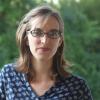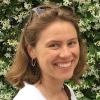History of Anthropology
The History of Anthropology Working Group is an outgrowth of the History of Anthropology Review. Originally called the History of Anthropology Newsletter, HAR has been a nerve center for the history of anthropology for over forty years. In 2014, our editorial collective brought the newsletter into the digital age, redesigning it as an open access website with new sections and features. Over the six years since HAR’s relaunch we’ve seen the field of history of anthropology expand beyond an earlier focus on classic texts and figures to incorporate global traditions of anthropology, approaches from Indigenous Studies, STS and the History of Science, museology, library and information science, and the politics of collecting and displaying cultures. The history of studying the world’s cultures, ways of life, and systems of knowledge is vitally important as a means to address current issues, where increasing global connections do not erase significant differences.
HAR’s editors sought a forum in which to discuss and develop the issues that drive the journal beyond what is there on the site. This Working Group is open to anyone who wants to reflect on the histories of anthropology—anthropologists, historians, interested others.
Building on last year’s series of discussions on anthropology’s historical entwinement with racial science, white supremacy, and anti-racist activism, our discussions this year (2021-22) will explore the significance of anthropology’s history to its current practice. We are inviting anthropologists to choose historical texts or moments in the history of the field which they have found useful, difficult, or inspirational for their own work. Among other topics we aim to question the difference between histories of anthropology approached from inside the discipline and from outside of it, and the different ways in which critical and archival research about anthropological precedent informs current inquiry. We warmly welcome anthropologists, historians, and any other interested parties to join the conversation.
Please set your timezone at https://www.chstm.org/user
Respectful Behavior Policy
Participants at Consortium activities will treat each other with respect and consideration to create a collegial, inclusive, and professional environment that is free from any form of discrimination, harassment, or retaliation.
Participants will avoid any inappropriate actions or statements based on individual characteristics such as age, race, religion, ethnicity, sexual orientation, gender identity, gender expression, marital status, nationality, political affiliation, ability status, educational background, or any other characteristic protected by law. Disruptive or harassing behavior of any kind will not be tolerated. Harassment includes but is not limited to inappropriate or intimidating behavior and language, unwelcome jokes or comments, unwanted touching or attention, offensive images, photography without permission, and stalking.
Participants may send reports or concerns about violations of this policy to conduct@chstm.org.
Upcoming Meetings
-
Wednesday, February 5, 2025 12:00 pm to 1:30 pm EST
TBA
-
Wednesday, March 5, 2025 12:00 pm to 1:30 pm EST
TBA
-
Wednesday, April 2, 2025 12:00 pm to 1:30 pm EDT
TBA
-
Wednesday, May 7, 2025 12:00 pm to 1:30 pm EDT
TBA
-
Wednesday, June 4, 2025 12:00 pm to 1:30 pm EDT
TBA
Past Meetings
-
December 4, 2024
We are delighted that in December we will host Michael Edwards, Lecturer in Anthropology, University of Sydney to discuss his work in progress:
Wheels Turning: Anthropological Solidarity, Engaged Buddhism, and a Return to the 1990s
In the conventional histories of anthropology that we tend to tell, certain decades loom large: the 1920s, for example, or the 1980s. This article experiments with a comparative reading of a decade closer to our fraught present: the 1990s. With an eye to the discipline’s current impasses, and with the benefit of some three decades’ distance, I join others in beginning to historicise 90s sociocultural anthropology, tracking its turns amid the cultural moods and political conditions of that moment. I do so by rereading this history obliquely, alongside the history of an adjacent intellectual and social formation, that of engaged Buddhism. Considering how anthropologists and engaged Buddhists grappled, through the 1990s, with a set of related questions—about interdependence, suffering, and engagement—reveals ethical ambitions and political shortcomings that continue to shape pressing debates in both fields today, not least about the promises and practices of solidarity.
Prof. Joel Robbins (Cambridge) and Dr. Erick White (Independent Scholar) will be our esteemed commentators for the session!
-
November 6, 2024
We are delighted to welcome Margarita Valdovinos (Inst. Investigaciones Filosóficas, UNAM, Mexico), who will share a paper on "The Study of Amerindian Languages. The Maya Case." The paper will be discussed by Prof. Fernando Armstrong-Fumero (Smith College) and Emmanuel Szurek (EHESS, Paris)
Abstract:
A diachronic reflection about the classes of Yucatec Maya as a second language in Paris (Inalco) brought me to the study of French Americanist traditions and their interest in the understanding of Amerindian languages. At the first quarter of the 19th Century, the discovery of Mayan epigraphic writing by French intellectuals triggered the study of Mayan archaeological sites. Very soon, it became clear that along with archeological studies, the study of language was necessary to decipher the evidences provided by the material vestiges.
In this paper, I will analyze how Amerindian languages have been studied in two different moments at the French academic context. First, I will study how Amerindian languages became an object of knowledge in the XIXth Century, and then, how in the XXth Century this knowledge is developed until it becomes an object of teaching.
The observations offered by this study will help me to understand how ideas about language are constructed, how do they emerge in socio-cultural practices, how they travel in time and space and how they interact with one another.
-
October 2, 2024
We are looking forward to discussing the draft paper, "Writing History into the Economy of Nature: Carl Linnaeus (1707-1778) and Lars Montin (1723-1793) on the Reindeer Warble Fly (Hypoderma tarandi L.)," with Staffan Müller-Wille (Cambridge). The paper will be discussed by Prof. Jia Hui Lee (U of Bayreuth)
Abstract: In the summer of 1732, a young medical student named Carl Linnaeus (1707-1778) journeyed through Sápmi. Just under two decades later, Lars Montin (1723-1778), a student of the now widely known Uppsala professor Linnaeus, quite literally followed his teacher's footsteps. We will focus on the accounts that both naturalists gave in their travel journals of the parasitic reindeer warble fly Hypoderma tarandi. While Linnaeus integrated the life history of this fly with his idealized image of Sámi pastoralism as representing a 'silver age' of humanity in tune with the balance of nature, Montin mused about ways in which the fly's damaging effects on reindeer could be weaponized to change the course of history and force the Sámi into 'productive' labour. As a consequence, Linnaeus's timeless conception of an economy of nature was infused with notions of historical development and an open future. We will suggest that the differing attitudes of Linneaus and Montin can be explained by changes in the political context that shaped their respective expeditions--most notably an emerging effort to enforce national borders and fiscal regimes in Northern Scandinavia in the 1740s and 1750s. The different attitudes they developed towards the reindeer warble fly also point to deeper connections between natural history practices and the writing of human histories.
-
September 4, 2024
We are delighted that this month our co-convener Paula López Caballero (UNAM, Cambridge) will share her paper, "Outline of a “bastard” theory of racialisation: Mestizaje and vernacular dynamics of identification in Mexico (1940-1960).”
Matt Watson (Mount Holyoke) and Rosanna Dent (Cambridge) will offer comments to get discussion started.
-
May 1, 2024
We are very pleased to have Hande Birkalan-Gedik (Goethe-Universität Frankfurt am Main) join us in May.
Title: Eugène Pittard, Bayan Afet, and Others: Actors and Milieus of Anthropological Knowledge and the Formation of the Turkish History Thesis in the 1930s
Abstract: My study delves into the formation of racial-anthropological knowledge by Swiss and Turkish political elite, anthropologists, and historians during the 1930s, focusing on its role in the political narratives of Turkish nation-building. Central to this research is Eugène Pittard, founder of the Musée d'ethnographie de Genève and the first Chair of Anthropology at the Université de Genève. Pittard was instrumental in challenging the scientific validity of racial categorizations, yet paradoxically, he also championed the "Turkish History Thesis," which posited that the "Turkish race" is superior and ancestral to European races. This argument aligned well with the ideological needs of Turkey's nation-building efforts at the time. My investigation is part of a DFG-funded project that scrutinizes the production and dissemination of "racial" knowledge within Turkey through various networks, involving a diverse group of European and Turkish scholars, cultural diplomats, and political figures. By analyzing extensive archival materials from Switzerland, Germany, and Turkey, I aim to unravel the complex interactions among these actors and their use of anthropological knowledge for political purposes. Ultimately, this work seeks to enrich our understanding of the history of anthropology in Turkey by offering a critical analysis of these historical dynamics that can challenge the existing disciplinary narratives.
Our commentators will be Sebastián Gil-Riaño (University of Pennsylvania) and Katja Geisenhainer (Frobenius Institute—Goeth University).
-
April 3, 2024
April's session will feature an informal talk by Joanna Radin (Yale) titled "Michael Crichton's Racial Calculations for 1960s Anthropology." There will not be a pre-circulated reading for this session.
-
March 6, 2024
Presenter: Adrianna Link (American Philosophical Society).
Title: (Re)Inventing Anthropology's History through Crisis and Collections at the American Philosophical Society
Abstract: This chapter uses the growth of the American Philosophical Society’s anthropological and linguistic collections during the mid-20th century to explore connections between American anthropology’s documentary impulse and the lead up to its disciplinary reckonings in the late-1960s and early 1970s. Drawing on my positionality as both an employee of the APS and as a historian of anthropology trained within a history of science tradition, I consider how anthropology’s disciplinary histories have shaped and continue to shape the function of the Society’s Indigenous collections by highlighting two key moments in their development: 1) the 1945 deposit of papers from the American Council of Learned Societies (ACLS) Committee on Native American Languages and the concurrent launch of the Phillips Fund; and, 2) events leading up to the 1965 publication of the Guide to Manuscripts Relating to the American Indian in the Library of the American Philosophical Society and the subsequent 1967 conference on “The American Indian,” which itself was held as part of a larger series of conferences related to the Society’s program in the history of science. I suggest that while the APS’s archives proved important to the process of establishing the contours of anthropology’s history and its disciplinary reinvention in the late 1960s, the emphasis on history of anthropology also effectively obscured the contributions and authority of Indigenous peoples in the creation and processing of many of its collections. The chapter ultimately concludes with a discussion about what the intertwined histories of anthropology’s archival and disciplinary formation might reveal about the field’s continued sense of crisis, both as it pertains to its shifting disciplinary standards and to the ethical stewardship of Indigenous materials.
Paper available below!
-
February 7, 2024
We are very pleased to have Ramon Folch González (Arizona State University) join us in February.
Title: Frans Blom in Chiapas, Mexico & the World: recovering information on art, looters and collections (1943-1963) from local archival sources
Abstract: This paper analyses the role played by Frans Blom in the Mesoamerican antiquities trade in Chiapas during the 1940's and 50's trough the unpublished documents stored in the Na Bolom Museum archives. The details of Blom's life are very well known and the sheer size of his archives allows us to learn his opinions and instances where he collaborated with collectors as well. There are few anthropologists whose life is as documented as Blom's and this is a way to understand how ambivalent some postures were towards collectionism and looting in the early days of Mexican anthropology. I consider Blom played a crucial role in delaying the looting phenomenon in Chiapas until the 1960's, his letters show him well informed about looting and his broad network of friends and acquaintances allowed him to denounce what he considered wrongdoing. The rich archives at Na Bolom also inform us about the contextual information of many museum objects both in Mexico and overseas, in some cases museum director would ask Blom for advice about an object and his opinion would be taken for granted, some of the contextual information in museums to this days can be traced to an informed opinion by Blom. tracing the little contributions made by scholars to museum collection via correspondence sheds light on the great complex network of knowledge transmission during the mid-XXth century. This case can serve as an illustrative example to study the life of other historical figures and study them beyond their published works.
Our commentators will be Matteo Bortolini (Università di Padua) and Sam Holley-Klein (University of Maryland).
-
January 10, 2024
*NOTE SPECIAL DATE*
Our first meeting of 2024 will revolve around the work of Sam Holley-Kline (University of Maryland, College Park).
Title: Managing Archaeology at the United Fruit Company, 1908-1952
Abstract: Maya archaeologists collaborated with the United Fruit Company during the first half of the twentieth century. In Guatemala, the Company funded research projects in Quiriguá (1910-1915) and Zaculeu (1946-1949). While scholarship increasingly recognizes the interpretative convergences between archaeological and corporate interests in the context of U.S. imperialism, the day-to-day administration of funds and management of workers have been relatively less examined. Based on archival research, I suggest that focusing on these areas draws archaeology into the political economy of U.S. imperialism and broader practices of racial discrimination—but these worked differently based on corporate objectives and local socioeconomic conditions. I conclude by advocating for bottom-up approaches to the history of archaeology that cross established historiographic boundaries.
Our commentators will be Christopher Heaney (Pennsylvania State University) and Matthew Watson (Mount Holyoke College).
-
November 1, 2023
Brooke Penaloza-Patzak is a Marie Jahoda Fellow at the University of Vienna, Department for Economic and Social History, and joins us to workshop a chapter from her book manuscript "With Objects at Hand. The Rise and Fall of the Natural Science of Human Culture, 1860-1930"
We will be reading a draft of her final chapter entitled "The Great War and Science in Terms of Flour and Fat."
The chapter centers on the fate of liberal, international Americanist anthropology in the inter-war period from a broader history of science perspective. Central themes include long-term engagements linking object-based methods and frameworks for research into cultural and biological development, the 20th-century fate of pan-German ethos born of the European revolutions of 1848, trans-national campaigns to debunk pseudoscientific race science, and the sale of 19th-century ethnographic collections by German and Austrian-based scientists liquidating "personal" assets to cover basic living costs.
We will be joined by Lee Baker (Duke University) and Cameron Brinitzer (Max Planck Institute for the History of Science) will provide commentary for Brooke's chapter.
Group Conveners
-

Rosanna Dent
Rosanna Dent is Lipton Lecturer (assistant professor) in the Department of History and Philosophy of Science at Cambridge, where she teaches courses on the history of science, medicine, and technology, with an emphasis on the global South. She is currently working on a book manuscript on the history of twentieth century research in A'uwe (Xavante, Indigenous) communities in Central Brazil. The book examines how a half-century of iterative interactions of scholars and community members have shaped knowledge production as well as the political and social realities of both subjects and scholars.
-

Judy Kaplan
Judy Kaplan is a cultural and intellectual historian of the human sciences with a focus on nineteenth- and twentieth-century linguistic research. She has published widely on subjects from orientalism to sound studies and is currently working on a new project that unravels histories of research on language universals. She is the NSF Fellow in Residence at the Consortium for History of Science, Technology and Medicine.
-

Paula Lopez
Paula López Caballero is a historian and anthropologist working at the National University in Mexico. The transversal question of her research is to critically examine indigeneity as a historical variable where the State, knowledge production, and ethnographic mediation are deeply intertwined. Her current project examines the first long-term anthropological expeditions in Mexico by Mexican- and U.S.-based social scientists from 1940 to 1960, as a privileged site to document how the daily, routine and systematic encounter with native inhabitants during fieldwork implied new standards of scientific objectification and representation.
-

Matthew Watson
Matthew C. Watson is an associate professor of anthropology at Mount Holyoke College. As an anthropologist and historian of the social sciences, his published work includes wide-ranging journal articles and an experimental ethnography of Maya hieroglyphic decipherment, Afterlives of Affect: Science, Religion, and an Edgewalker’s Spirit (Duke UP, 2020). His current research centers the formation of modern Americanist cultural anthropology through large, collaborative fieldwork projects and field schools in southern Mexico. At present, he is writing a history of the Harvard Chiapas Project (1957-1980) that documents an array of mediating fieldwork techniques and technologies: off-road vehicles, aerial photography, paper technologies, and computerized data processing and storage.